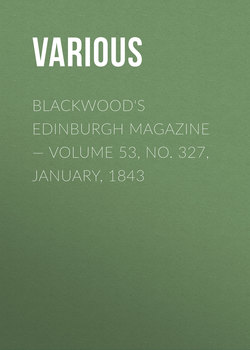Читать книгу Blackwood's Edinburgh Magazine — Volume 53, No. 327, January, 1843 - Various - Страница 9
LESURQUES; OR, THE VICTIM OF JUDICIAL ERROR VIII.—THE WAY IN WHICH FRANCE RECTIFIES AN ERROR
ОглавлениеIt is now forty years since the innocence of Lesurques has been established, and little has been done towards the rehabilitation of his memory, the protection of his children, and the restitution of his confiscated goods! Forty years, and his wretched widow has only recently died, having failed in the object of her life! Forty years has the government been silent.
M. Daubenton, who took so honourable and active a part in the detection of the real criminals, consecrated a great part of his life and fortune to the cause of the unfortunate widow and her children. The declaration he addressed to the Minister of Justice commenced thus:—
"The error, on which was founded the condemnation of Lesurques, arose neither with the judges nor the jury. The jury, convinced by the depositions of the witnesses, manifested that conviction judicially; and the judges, after the declaration of the jury, pronounced according to the law.
"The error of his condemnation arose from the mistake of the witnesses—from the fatal resemblance to one of the culprits not apprehended. Nothing gave reason to suspect at that time the cause of the error in which the witnesses had fallen."
We beg to observe that the whole trial was conducted in a slovenly and shameful manner. A man is condemned on the deposition of witnesses;—witnesses, be it observed, of such dulness of perception, and such confidence in their notions, that they persisted in declaring Guesno to be one of the culprits as well as Lesurques. Yet the alibi of Guesno was proved beyond a doubt. How, then, could the jury, with this instance of mistake before their eyes, and which they themselves had condemned as a mistake by acquitting Guesno—how could they place such firm reliance on those self-same testimonies when applied to Lesurques? If they could convict Lesurques upon such evidence, why not also convict Guesno on it? Guesno proved an alibi—so did Lesurques; but because one foolish friend perjured himself to serve Lesurques, the jury hastily set down all his friends as perjurers; they had no evidence of this; it was a mere indignant reaction of feeling, and, as such, a violation of their office. The case ought to have been sifted. It was shuffled over hastily. A verdict, passed in anger, was executed, though at the time a strong doubt existed in the minds of the judges as to its propriety!
Neither the Directory nor the Consulate, neither the Empire nor the Restoration, paid attention to the widow's supplications for a revision of the sentence, that her husband's name might be cleared, and his property restored. In vain did M. Salgues devote ten years to the defence of the injured family; in vain did M. Merilhou, in an important procès, warmly espouse the cause; the different governments believed themselves incapable of answering these solicitations.
Since 1830 the widow again supplicated the Tribune des Chambres. Few sessions have passed without some members, particularly from the dèpartment du Nord, calling attention to the subject. All that has been obtained is a restitution of part of the property seized by the fisc at the period of the execution.
Madame Lesurques has died unsuccessful, because a judicial error cannot be acknowledged or rectified, owing to the insufficiency of the Code. A French journal announces that the son and daughter of Lesurques, still living, pledged themselves on the death-bed of their mother to continue the endeavour which had occupied her forty long years—an endeavour to make the law comprehend that nothing is more tyrannous than the strict fulfilment of its letter—an endeavour to make the world at large more keenly feel the questionable nature of evidence as to personal identity in cases where the witnesses are ignorant, and where the evidence against their testimony is presumptive.
